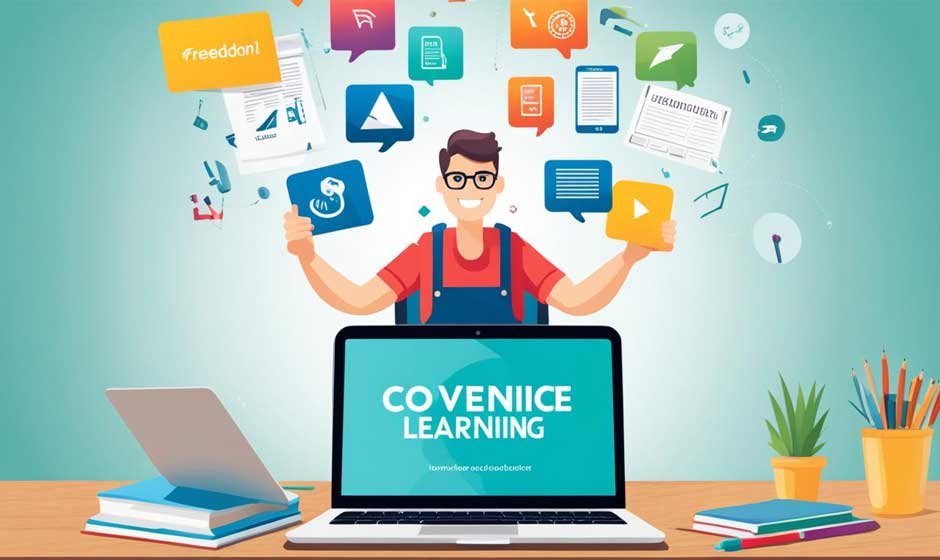
Education as we know it is transforming rapidly, evolving to accommodate the modern world’s diverse needs and fast-moving demands. Today’s learners are no longer tied to the traditional classroom, nor are their goals confined to conventional definitions of academic success. With technology integrating into everyday life, students increasingly seek opportunities that mesh seamlessly with their academic and personal aspirations. Flexible online learning has emerged as a key solution for contemporary students, offering unprecedented convenience and freedom. One standout illustration of this evolution is the model provided by https://www.k12.com/wisconsin-online-schools/, which delivers customized education plans to suit an ever-growing variety of students and circumstances. These programs showcase not just academic content but also flexible tools and schedules for the demands of their unique learners. As a direct result, learners of all ages and backgrounds realize that their goals are within reach—even amidst work, family duties, and community activities—because online platforms remove traditional constraints around time and place, giving learners new control over their education.
Balancing Education with Life’s Demands
One of the defining features of flexible online learning is its ability to help students harmonize academic pursuits with life’s many responsibilities. Committing to inflexible classroom hours may seem impossible for working adults, parents, or anyone managing a busy schedule. Online education shatters this barrier by allowing students to access lectures, complete projects, and interact with peers or instructors at times that fit their lives. Whether it’s studying late at night, squeezing in coursework on lunch breaks, or dedicating weekends to learning, the flexibility provided by online models is unmatched. As Harvard Business School Online points out, when students manage their schedules, they build stronger time management skills, develop discipline, and access opportunities for deeper engagement with material. This empowerment relieves stress and promotes a more efficient, personalized educational experience. Families, military personnel, and those involved in seasonal work especially benefit from platforms that accommodate nontraditional weekly rhythms, transforming the possibility of academic success for many.
Expanding Access to Quality Education
Geography should never stand in the way of a quality education, yet for many years, students in rural or underserved communities had few viable options for academic advancement. Online learning has closed this gap, bringing reputable programs and globally renowned instructors directly to students, wherever they reside. As learning moves to virtual spaces, boundaries fade, enabling learners to select from an astounding spectrum of courses that may not have been offered locally, including specialized STEM programs, language classes, and the arts. Whether a student is in a big city, a remote farming village, or even traveling abroad, they can now access academic materials, classmates, and support services with an internet connection. The democratization of education is underway: students from all walks of life can engage with rigorous content and collaborate with peers worldwide, building networks and perspectives that were out of reach for previous generations.
Personalized Learning Paths
Every learner is unique, possessing their strengths, preferences, and areas for growth. Flexible online education recognizes these differences, employing adaptive digital platforms and analytics-driven feedback to tailor experiences to the individual. For some students, this means accelerating through content in which they excel, while for others, it means having extra time or resources for more challenging subjects. Whether students grasp concepts quickly or prefer a methodical pace, online courses can adapt in real time, offering supplementary challenges or constructive support as needed. Assignments may be personalized to match students’ interests, letting creativity flourish while building mastery. Interactive assessments can pinpoint knowledge gaps or suggest targeted resources, helping to meet learners where they are and set realistic goals. This level of customization has a profound impact: not only are academic outcomes improved, but students also gain confidence and a greater sense of ownership over their learning journey.
Fostering Digital Literacy
As nearly every sector of society becomes technology-driven, the importance of digital literacy cannot be overstated. Flexible online learning naturally embeds technology into the learning process, teaching content and digital skills essential for thriving in the modern workforce. Students become adept at navigating learning management systems, participating in virtual discussions, collaborating via cloud-based tools, and conducting research using online databases. Once considered optional, these skills are now essential for higher education and nearly every career path. By routinely interacting with multimedia resources and adapting to new platforms, learners cultivate versatility and technical know-how that give them a decisive edge after graduation. The practical, hands-on experience students gain online is indispensable, and as WNY News Now notes, digital skills are increasingly a prerequisite in higher education and the workplace, setting students up for ongoing success and adaptability in a rapidly changing world. These experiences build competence and confidence when approaching new software or technological challenges.
Cost-Effectiveness and Accessibility
The financial realities of pursuing education are often a significant concern for students and families. Online programs alleviate many traditional expenses: the costs of commuting, campus housing, and physical textbooks are gone. Many digital courses utilize open-source materials or e-books, cutting spending even further. Without the overhead of maintaining physical classrooms, institutions can often pass savings on to students through lower tuition and reduced fees. This increased affordability allows people who may have otherwise been excluded due to financial barriers to enroll and thrive.
Enhancing Student Engagement
While traditional classrooms have their strengths, the digital environment introduces new opportunities for meaningful engagement that can transform the learning experience. Interactive video lectures, virtual laboratories, and real-time chats allow students to interact deeply with content and each other. Shy or introverted students often find it easier to contribute their thoughts in online forums, while group projects and peer review foster collaboration that transcends physical limitations. Platforms with built-in gamification features, instant polls, and self-paced modules keep learners motivated and curious. According to The Continents States University, such features build academic skills, communication, and teamwork, creating virtual communities where meaningful exchanges and networking can flourish. Online learning spaces accommodate diverse learning and teaching styles, drawing in students who benefit from interactive and multimedia content.
Supporting Emotional Well-being
Academic achievement is closely linked to mental and emotional health. For many, rigid deadlines and heavy commutes add layers of anxiety that hinder learning and personal happiness. Flexible online learning places well-being at the forefront by offering students much-needed autonomy over their schedules and workload. This sense of control helps individuals cope with unexpected life changes, such as illness, caregiving, or shifting work hours, without derailing academic progress. It also allows learners to integrate self-care routines or pursue extracurricular passions that recharge their energy. Research from Heaven Learning Academy shows that student well-being flourishes in environments where flexibility opens the door to success without constant stress, granting students the resilience they need to persist—and excel—in their studies. By reducing external pressures and supporting mental health, flexible learning makes it easier for students to reach their academic goals while maintaining balance in other areas of life.
Preparing for a Digital Future
Online courses do much more than transmit knowledge—they prepare students for the ever-changing realities of a global, digital society. The skills developed through flexible online learning, from independent problem-solving to remote teamwork, are becoming essential for navigating the modern job market. Students graduate confident in their ability to adapt to new tools, communicate across digital platforms, and leverage emerging technologies throughout their careers. By embracing scenarios requiring technical proficiency and creative solutions, flexible online education is laying the foundation for immediate academic achievement and a lifetime of learning and professional growth. As highlighted by Heaven Learning Academy, these future-ready skills make today’s online learners tomorrow’s innovators and leaders. Students entering the workforce with a collaborative virtual learning experience are equipped to succeed in teams scattered across the globe, ensuring their skills remain relevant as industries evolve.





